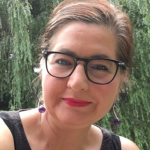Testimonials on volunteering in Quebec during the COVID-19 crisis
Interview with Marie Simard, Cultural project manager, programming, citizen mobiliztion, logistics and social art at Paroles d’ExcluEs
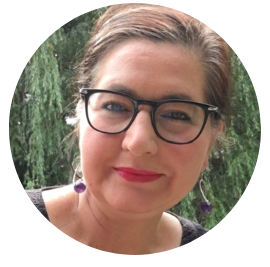
For over 30 years, Marie Simard has been building bridges between society’s most excluded groups and the cultural sector. Trained by the citizens themselves, the true poverty experts, her classroom consisted of the neighborhoods and streets of those she aimed to serve. Today, at Parole d’excluEs she fosters the development of collective and individual action capacity and through art, advocacy and action, she gives a voice to those otherwise rarely heard.
Parole d’ExcluEs is a non profit organization based in Montreal-North and was founded in 2006 with the hope of renewing practices in the fight against poverty and social exclusion. Now established in two Montreal-North neighborhoods, “l’îlot Pelletier” and “Lapierre”, and the reach of their practices extending throughout their borough, Montreal and internationally, the organization has developed an action model that stems from the self-identified needs of those living in social exclusion or poverty. Parole d’excluEs helps develop collective structural projects and carry messages to public authorities and the media with the objective of transforming the economic and political systems to foster inclusion rather than exclusion. The volunteers involved (the “citizens”) and employees work side-by-side. In this way, the citizens can: collaborate in project development, give their opinion, influence the broad orientations, participate in working committees, join the Board of Administration and, most importantly, help build a mobilizing movement that finds solutions to citizen-identified priorities.
***
Diane Alalouf-Hall (DA-H): What impact did the quarantine, announced last March 13th, have on your organization and its “citizens”?
Marie Simard (MS): I remember the announcement made the previous night very well! It is important to note that while both of our offices are spaces in which we communicate and meet with others to propose new ideas and projects, they are also meant to break social isolation. Unfortunately, on March 13th, we were forced to close our offices. From one day to the next, all of our projects were cancelled. However, despite the quarantine’s challenges, Parole d’excluEs managed to reach out to the most vulnerable members of our communities thanks to the support of our dedicated citizens, whom we call our “relay citizens”. These people are our eyes on the ground, and they are essential.
At that time, we were still trying to understand what was happening. We didn’t have as much information as we do now and we had to manage everyone’s fears. Our field agents had to increase their psychological support. To make matters worse, in the west end of the borough, “Mission Bon Accueil”, a significant location for the patrons of l’ilot Pelletier had to temporarily shut their doors.
DA-H: How did the “citizens” offer support over the past nine months?
MS: Relay citizens spontaneously, and very quickly, organized a solidarity network, which started by telephone. They reached out to people to touch base and make sure all was well despite the circumstances. Later, there were “underground” food exchanges, to satisfy each other’s needs: a can of peas in exchange for a can of beans, etc. Having access to a healthy and diversified diet isn’t easy. It is something we have been working on for years, bringing us to the Sécurité Alimentaire Pour Tous initiative (Food Security for all). For instance, we initiated bulk purchases which led to the creation of the Paniers futés organization and we installed beehives on the roofs of one of îlot Pelletier’s buildings, and planted gardens on both sites. The pandemic, and the beginning of quarantine, was especially revelatory of the food emergency. How to do groceries in quarantine? Let us remember how difficult and dangerous it was to take public transportation during the first wave of the virus. It was very much a question of survival. Also, we were halfway through the month, when bank accounts were already quite empty for many. We reacted quickly and mobilized funds to finance emergency “meal baskets”.
In parallel, a small group of citizens was formed to go grocery shopping for those who could not leave the house. In this team, Manon and Céline L. stored food items in their homes, as we couldn’t open our offices. Céline B. and Guy covered many miles, taking risks as they shopped for and delivered groceries before we could provide safety equipment (masks, gloves, face shields). All of this in a week! Thankfully, none of them got sick. We accompanied them by spreading awareness of the safety precautions to take to avoid putting oneself or others in danger. However, we did not initiate any of it, it all came from the citizens themselves, we simply accompanied the initiative. It was a beautiful demonstration of citizen solidarity. This spontaneous mobilization improved safety by limiting trips, especially for the elderly and single-parent families. Later on, these acts of solidarity fostered a sense of mutual aid at a time where we needed it most. It was beautiful, very moving.
DA-H: What were you able to implement and observe between the 1st and 2nd waves of the pandemic?
MS: In the summer, during the short respite between the two “battles”, our priority was to give our relay citizens a break. Everyone had worked very hard. We prescribed rest to all and accompanied the progressive transition out of quarantine. We knew that there would be a second round in the Fall… When it happened, morale was very low, so we increased our offer of psychological support. We gave a workshop called “ how to de-quarantine and stay healthy” and access to an online psychologist was given to the participants of our group discussions. Our citizen Espace Santé program was growing and having access to the outdoors finally allowed us to get together! But no more than 10 people… Our offices were progressively reopened. It was then possible for people to have a session with a psychologist in one of our office spaces. Other participants were connected via their computers. People got used to the online discussions and overall, the initiative was well appreciated. The psychologist was not a volunteer, but we did have nurses who gave of their time as volunteers. Concerning psychological support, my colleague and I also needed to talk to someone and Paroles d’excluEs mobilized the necessary resources. The citizens also helped us, as they are as interested in us as we are in them. Our relay citizens are now my colleagues.
Another major action that happened during the summer needs to be highlighted: the re-opening of our offices. This was made possible thanks to the citizens who got together (whilst following the safety regulations in place) to develop a strong proposal to push for the re-opening, and they succeeded. A rigorous procedure was written up and implemented by and for the citizens which included: a health register, hourly sanitization, airing, limiting the number of people in the space, etc. We have been open ever since and everything is going well. There has definitely been a change in attitude in the office. Before, we encouraged everyone to be responsible for themselves and their impact on the collective. For instance, during meal times, everyone took care of their cooking and cleaning. Today, in order to avoid useless movements, we serve everyone directly.
DA-H: How do you envision the post-COVID era?
MS: The pandemic has impacted all issues related to violence (conjugal violence, the rise in crime, etc.), drug and alcohol abuse and the degradation of physical and mental health. These issues will not go away after the pandemic. We have gone through difficult times. I have had to put exhausted individuals in ambulances although this wasn’t my role. Normally, I build projects, but I was brutally thrown into a role that resembled that of a social worker. That was the reality. We were forced to adapt to the new needs. It also became very complicated for us. Trying to find a balance between work and family was and still is very difficult. We need more resources in the community sector to support projects and the citizens who have countless ideas and have a better grasp of the solutions to their needs. What we must learn from the pandemic is that citizens are able to organize themselves very quickly, and on the long-term. They are more than volunteers, they are colleagues. With the quantity and quality of work they provided and continue to provide throughout the pandemic, they deserve a minimum of recognition and especially, a salary!
If not, more concretely, we will continue to work with the new technologies, such as Zoom or other video conference platforms. This has revealed itself to be an advantage for people for whom transport is an issue, as well as necessary to provide access to healthcare which is becoming more readily available by videoconference for psych sessions or family doctor appointments. However, this requires heavy lifting in order to surpass the digital gap. Not everyone has access to the internet, or knows how to use a computer. I also witnessed people cancelling their phone lines during the pandemic for financial reasons. Isolation was even worse! How to communicate, keep in touch and of course, access information? The issue is vast.
***
These acts of neighborhood solidarity are made possible thanks to the work of organizations working in close proximity, such as Parole d’excluEs. These organizations benefit from a pool of active volunteers who demonstrate their capacity for action by putting it towards mutual aid. These spontaneous actions, sometimes motivated by survival, stem from a context in which clear answers to pre-COVID-19 issues are not being given : access to food and healthcare, the economic challenges of certain boroughs such as Montreal-North, the fight against the digital gap and the revision of income security public policies towards a decent guaranteed minimum income.
Translation from French by Katherine Mac Donald
This interview is part of a series on volunteering in Quebec during the COVID-19 crisis. Find all of the interviews of the series here:
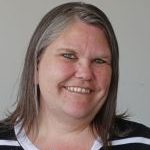
Entretien avec Mme Marilyne Fournier, directrice générale du Réseau de l’action bénévole du Québec (RABQ)
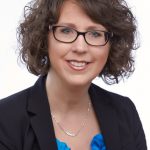
Entretien avec Joan Anderson, Vice-présidente, Service aux familles, Mission Bon Accueil
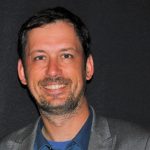
Entretien avec Michel Alexandre Cauchon, directeur général de la FCABQ
